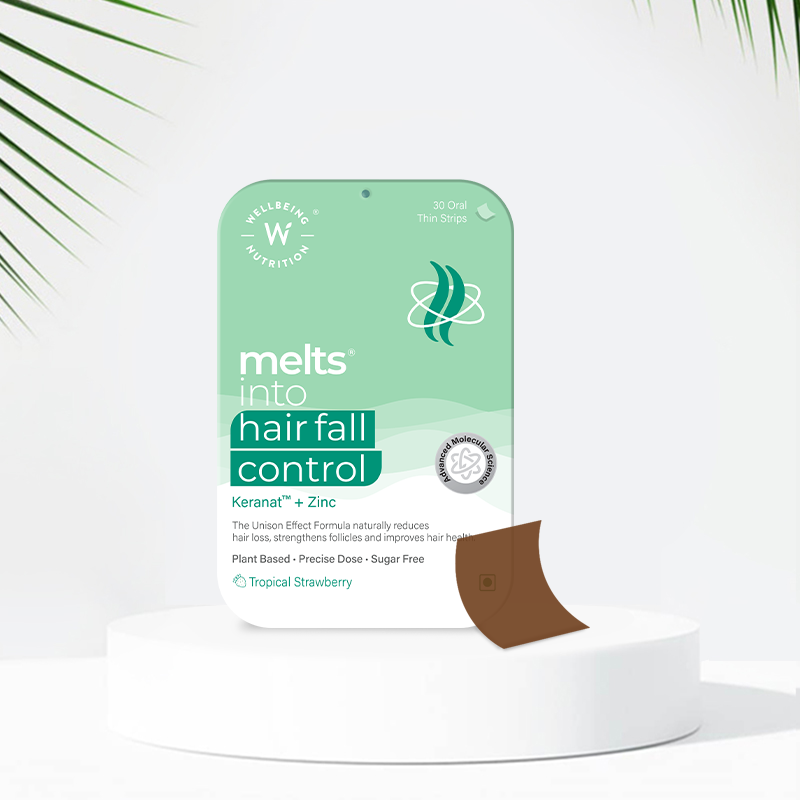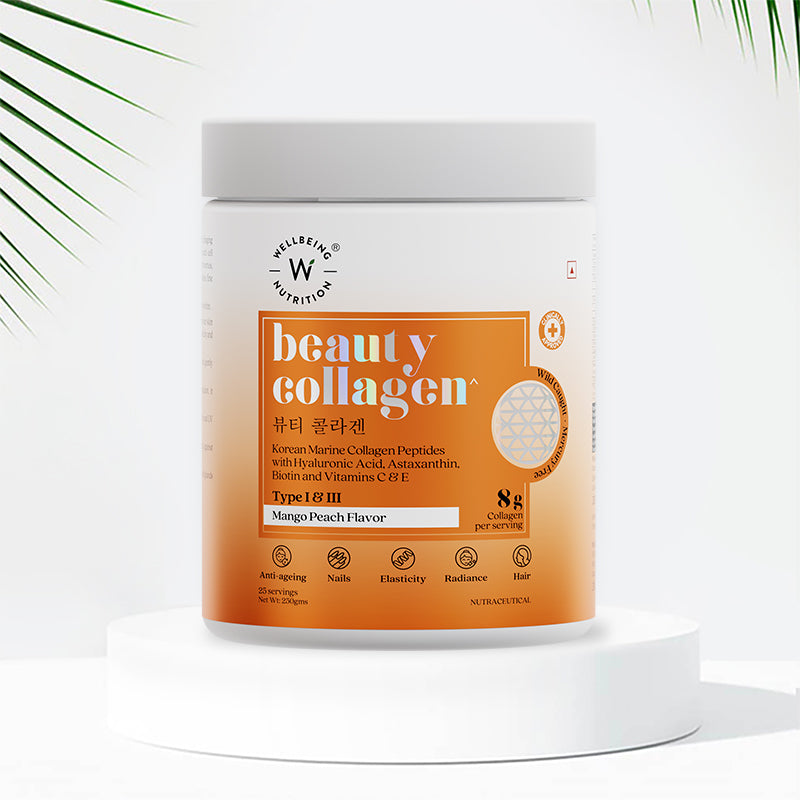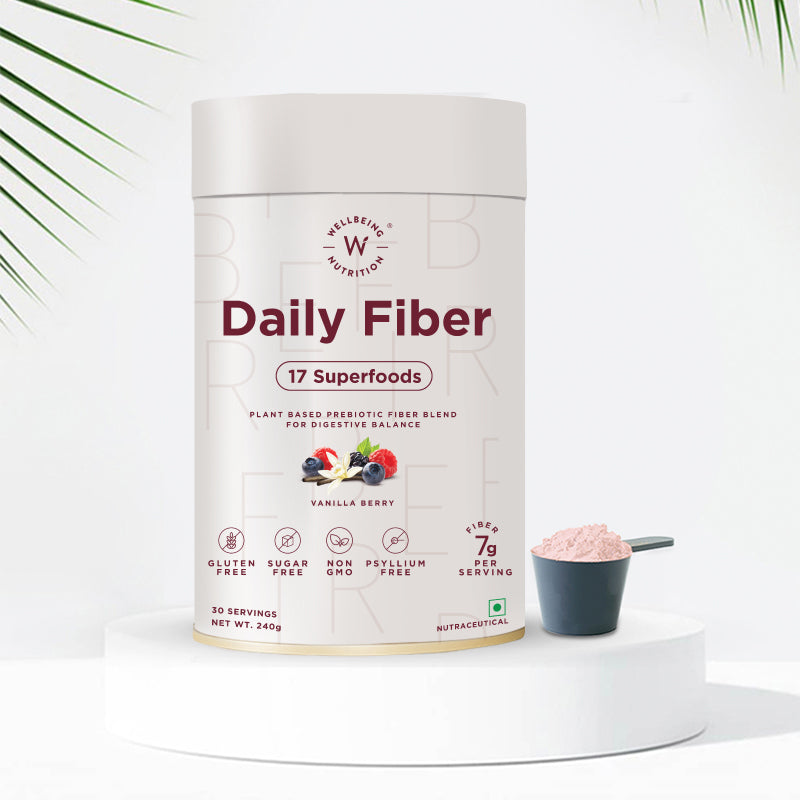Easter 2023: We're Here to Assist You in your Hunt for the Best Nutrients for Children!

It's Easter, and this year, the Easter Bunny is on a mission to get your kids fit and healthy. After all, every parent only wants the best when it comes to their child's health and well-being. Unfortunately, they are picky eaters, making it difficult to meet their nutritional needs. Even if the child is eating well, he or she may not be getting enough nutrients, putting them at risk of nutritional deficiencies. This could be due to their picky eating habits, unhealthy food consumption, such as snacking on non-nutritional fillers like chips, cold drinks, and cakes in between meals, or simply having a poor digestive system.
But there is no need to worry, just trust us. We’ve listed down 8 essential nutrients every kid needs during their growing years in order to ensure they are mentally and physically healthy. Scroll down to go on our very own nutrient hunt and learn more about the importance of each.
Hunt for the Right Nutrients!
Food is the fuel our body needs to function well. We all need nutrients like carbohydrates, fats, proteins, vitamins, and minerals. The requirement for these nutrients varies at different ages. It is very critical for kids to receive the right nutrition during their developing years for better growth, better immunity, better mental health, and to develop a healthy body weight and height. Let's go on a scavenger hunt and uncover each of these significant nutrients needed for your child’s overall well-being.
Note: Listed below are a few important nutrients for kids between the ages of 4 and 13 years old.

To Find the Hidden Nutrients Follow the Clues.
Clue #1: I help you grow big and lean, I’m in your food…What am I?
Proteins:
They aid in the development of muscles, the maintenance, and growth of tissues, and the strengthening of the immune system. This single nutrient performs numerous functions. Protein consumption, when started early, promotes healthy height and weight by the time the child reaches the age of ten. It serves a variety of functions, like being a component of collagen, which provides structure to cells, fighting bodily infections by acting as antibodies and aiding digestion by acting as enzymes. Proteins containing amino acids like lysine and arginine, specifically, have also been associated with growth hormones in young children.
Sources: Seafood, lean meat, eggs, dairy products, soybeans, pulses, lentils, nuts, and seeds are some of the great sources of proteins.
Clue #2: Helps in oxygen supply, I am in your blood, my name is?
Iron:
This mineral is important in all stages of life. It helps boost the production of red blood cells that carry oxygen to all parts of the body and also supports the child’s ability to learn. Insufficient intake of this mineral can lead to an iron deficiency. Iron deficiency, when not corrected in time, can lead to anemia which may affect the overall growth and development of children. General fatigue, poor appetite, pale skin, frequent infections, cold extremities, and behavioral problems in your child could be an indication that he/she is deficient in iron.
Sources: Red meat, organ meats, chicken, fish, beans, and spinach are some good sources of iron.
Clue #3: "Drink the entire glass of milk", says Mom. I'm hidden inside, I am?
Calcium:
This nutrient is popularly known for its role in the formation and upkeep of our teeth and bones. But did you know that the same calcium is also essential for the heart, muscles, nerve function, and the prevention of blood clots? If babies and children are deficient in this mineral, they are at risk of developing rickets. If calcium in the diet is insufficient, the body tends to draw calcium from the bones, weakening them. Optimal calcium-rich food intake is thus essential at all stages, particularly during childhood.
Sources: Dairy products, fortified fruit juices obtained from oranges, kiwis, or guavas, nuts, and seeds like sesame, sunflower, almonds, etc. are great sources of calcium.
Clue #4: I heal your tummy when it's sick because that's my home... Who am I?
Probiotics:
Probiotics are made of good bacteria and/or yeast that live in your body. Certain foods rich in these probiotics help maintain intestinal health. They replenish the body’s good bacteria and ensure a balance of gut microbiota. When it comes to kids, ensuring a daily intake of probiotics can help them with overall digestion and also treat gastric troubles like colic, diarrhea, or constipation. Probiotics for children may also help ease symptoms of irritable bowel syndrome (IBS).
Sources: Yogurt, tempeh, nato, kimchi, kombucha, kefir, cottage cheese, and sauerkraut are good sources of probiotics.
Clue #5: Few vitamins need to get absorbed, I'll help you out with that! I also help make you smart. I am your?
Healthy fats:
There is a general misconception that all fats are bad, but the truth is that they are just as important as nutrients like carbohydrates or proteins. It's the excess quantity and its source that defines whether it is a healthy or unhealthy choice. Fats help the body grow and also help in the absorption of vitamins. A certain type of good fat called omega-3 fatty acids has been observed to play a vital role in kids' development during their formative years. They help in developing the central nervous system and also aid in the management of psychological and behavioral conditions, owing to their role in brain signaling function. Omega 3 may also prevent depression and help in the treatment of autism in children.
Sources: Walnuts, flaxseeds, avocados, and salmon are good natural sources of omega-3.
Clue #6: I'm mostly found in seafood, you need me in limited amounts…My name is?
Iodine:
Iodine is one of the essential minerals required in small quantities for optimal bodily functions. The term "essential" here refers to the nutrients that cannot be produced by the body and need to be supplemented. This mineral is equally important for brain development and healthy growth in children. Iodine deficiency in kids can lead to cretinism, a condition that affects intellectual development and learning ability. Since iodine is also important for thyroid function, a severe deficiency could lead to thyroid failure, mental retardation, and neurological damage. Iodine is crucial for normal thyroid functioning, and the thyroid gland ensures the optimum production of T3 and T4 cells. These T3 and T4 cells are needed for activating certain neurotransmitters (brain communication tools) like serotonin, dopamine, epinephrine, GABA, and acetylcholine. All of these neurotransmitters are responsible for improving cognition, mood, and focus, as well as reducing stress, anxiety, and feelings of depression.
Sources: Cod, seaweed, shrimp, dairy products like milk and cheese, eggs, and iodized salt are great sources of iodine.
Clue #7: I’m needed from head to toe, from your hair to your skin! I have a big family, I am your?
Vitamins:
So which vitamins are important for your child’s growth and development? The answer is simple to remember: ABCD + K2. This family of vitamins has an array of functions to perform individually for your child’s development. From healthy vision to neurological development to strengthening bones to boosting immunity, vitamins are crucial for helping kids grow into healthy adults. The key to having access to all these vitamins is to eat a variety of foods.
Sources: Vitamins are present in all food groups, including cereal, pulses, fruits, vegetables, dairy products, poultry, meat, and fats.
Clue #8: A mineral to save you from diseases and more, my name is?
Zinc:
This trace mineral helps in addressing infectious and fatal diseases like pneumonia and diarrhea in children. When supplemented as a preventive measure, this mineral has been shown to promote growth and reduce mortality rates in children in developing countries. Zinc increases the efficacy of insulin, which is needed for bone and teeth mineralization, and also helps in DNA synthesis. It also plays an important role in all the cellular processes of the body. It is a crucial element, particularly in the early stages of life, as it promotes growth and development in kids. Breastmilk usually has a high amount of zinc after birth, which gradually decreases over a period of 6 months, so supplementation of zinc through foods or supplements for kids becomes essential. Researchers have also observed that zinc supplements may increase the quality and quantity of antibodies in children, thereby boosting the immune system.
Sources: Oysters, legumes like chickpeas, lentils, beans, eggs, dairy products, and seeds like hemp, pumpkin, squash, and sesame seeds are good sources of zinc.
Why Are Supplements Important for Children?
Whether your child has good eating habits or is a picky eater, adding supplements with the above-listed nutrients to their diet helps bridge the nutritional gap. Many factors can contribute to deficiencies or malabsorption of nutrients, like:
- A limited or restrictive diet
- Picky eating
- Poor digestion
- Chronic disease
This is why supplementing vitamins for children has become essential to prevent the delay of growth and development in children.
Realizing the nutritional gap, nutraceuticals have flooded the market with a variety of multivitamins for kids and other supplements. Most of the supplements marketed for kids and their growth claim to support healthy growth and development but may contain very little amounts of the nutrients in reality. Many of these supplements are also loaded with sugar, food colors and unknown ingredients, which could be worrisome. A few of them are also addictive, so making an informed choice is essential.
Making the Right Choice
While selecting supplements for kids, opt for sugar-free, color-free, preservative-, and allergen-free products. With the use of nanotechnology and molecular science, a few multivitamins for children have taken essential ingredients and converted them into oral thin strips. These oral strips are a preferred choice as they are easy to consume, unlike other multivitamin tablets, pills, or capsules. Also, unlike sugar-loaded gummies, these contain zero sugar, are preservative-free, and are non-addictive. Also, they come in attractive kid’s favorite Disney packages. Products like Disney multivitamins, Disney omega, and frozen probiotics with delicious natural flavors are popular among kids.
Wrapping Up
This Easter, ensure your child is getting all the nutrients they need through both diet and supplements. Each nutrient listed above contributes to your child’s overall well-being. If you are still unsure, make sure to consult your pediatrician before starting any new supplements for your kids.
References
Nutrition for kids: Guidelines for a healthy diet - Mayo Clinic
Iron deficiency in children: Prevention tips for parents - Mayo Clinic
22 Calcium-Rich Foods – Cleveland Clinic
The pros and cons of probiotics for kids | Geisinger
Do Kids Need Omega-3 Fats? (eatright.org)
Vitamin B and your health | healthdirect
Vitamin C and your health | healthdirect
Zinc - Health Professional Fact Sheet (nih.gov)
Recommended Daily Allowances :: RDA Chart | RDA Table (healthsupplementsnutritionalguide.com)
Vitamins for Kids: What Do Children Need? – Cleveland Clinic
- Choosing a selection results in a full page refresh.
- Press the space key then arrow keys to make a selection.

Talk to an Expert
















